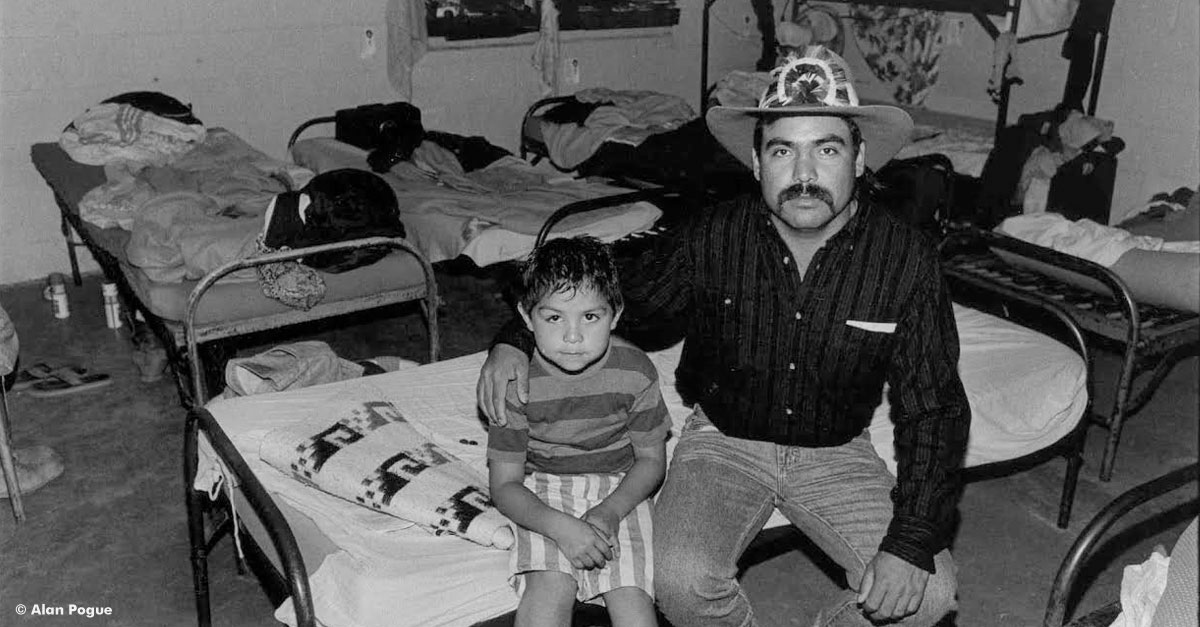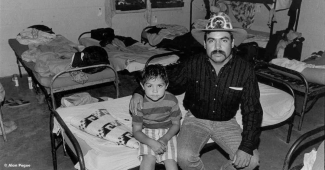The Impact of Farmworker Housing on Health: What Clinicians Need to Know

[Editor’s note: This blog was written by Farmworker Justice. Farmworker Justice is a national farmworker advocacy organization in Washington, D.C. FJ’s blog, Harvesting Justice, can be found here.]
For many farmworkers, home is not a welcome refuge after a long day in the fields. Often poorly maintained and overcrowded, their homes may in fact add to their stress. While there are relatively few studies directly examining the link between farmworker housing and health outcomes, housing has a profound effect on their physical and mental health.
The low wages of farmworkers leave few options for housing. While some live in traditional housing such as single family homes and apartments, many others live in employer-provided housing (often referred to as labor camps), dilapidated mobile homes, or motels. There are some farmworkers who live in their cars, in tents or under tarps near the fields, or in barns and tool sheds due to the lack of affordable housing. Farmworkers and their families often have little control over the quality or safety of their housing. They report leaking roofs/walls, poor ventilation, unsafe electrical wiring, a lack of clean water, unsanitary kitchens, and insufficient shower facilities. Besides the potential for respiratory problems, insect and rodent infestation, and parasites, these conditions compound the health risks associated with pesticide exposure. Lack of adequate bathing and laundering facilities, for example, increase the likelihood of pesticide contamination among farmworkers and their family members due to residue left on hair, skin, clothes and shoes. These poor housing conditions, when combined with the isolation from services in rural communities, only exacerbate adverse health outcomes.
In addition to the physical health risks associated with their housing, there are also mental health risks. The instability of agricultural work and the prospect of moving and finding new housing can be quite stressful. Migrant workers often bring along their families and don’t always have a home to themselves or separate bedrooms. Cost and availability of housing near the fields can lead multiple individuals or families to live together, crowding into a single room or trailer. The lack of privacy can alter family dynamics, especially when children witness arguments. There are known long-term, multi-generational impacts on farmworker children as a result of chronic stress and anxiety. Finally, overcrowding can lead to the potential for abuse and risky behavior such as unprotected sex or excessive alcohol consumption.
Clearly, an assessment of the occupational and environmental hazards inherent in agricultural work must also include housing conditions. For both diagnosis and treatment, it is important to understand the conditions in which farmworkers and their families live. As a tool, MCN has developed screening questions that target issues of occupational and environmental health. Additionally, by maintaining electronic health records that note relevant information about a migrant farmworker’s housing, clinicians can provide vital information to the next health center that receives the worker. Migrant health centers can also form medical-legal partnerships with legal services organizations to identify unsafe housing conditions and assist the worker when appropriate.
For more information on the effect of housing on farmworker health, see this recent webinar featuring legal and research experts on housing and health or this issue brief from Farmworker Justice.
Like what you see? Amplify our collective voice with a contribution.
Got some good news to share? Send it to us via email, on Facebook, or on Twitter.
Return to the main blog page or sign up for blog updates here.
- Log in to post comments
